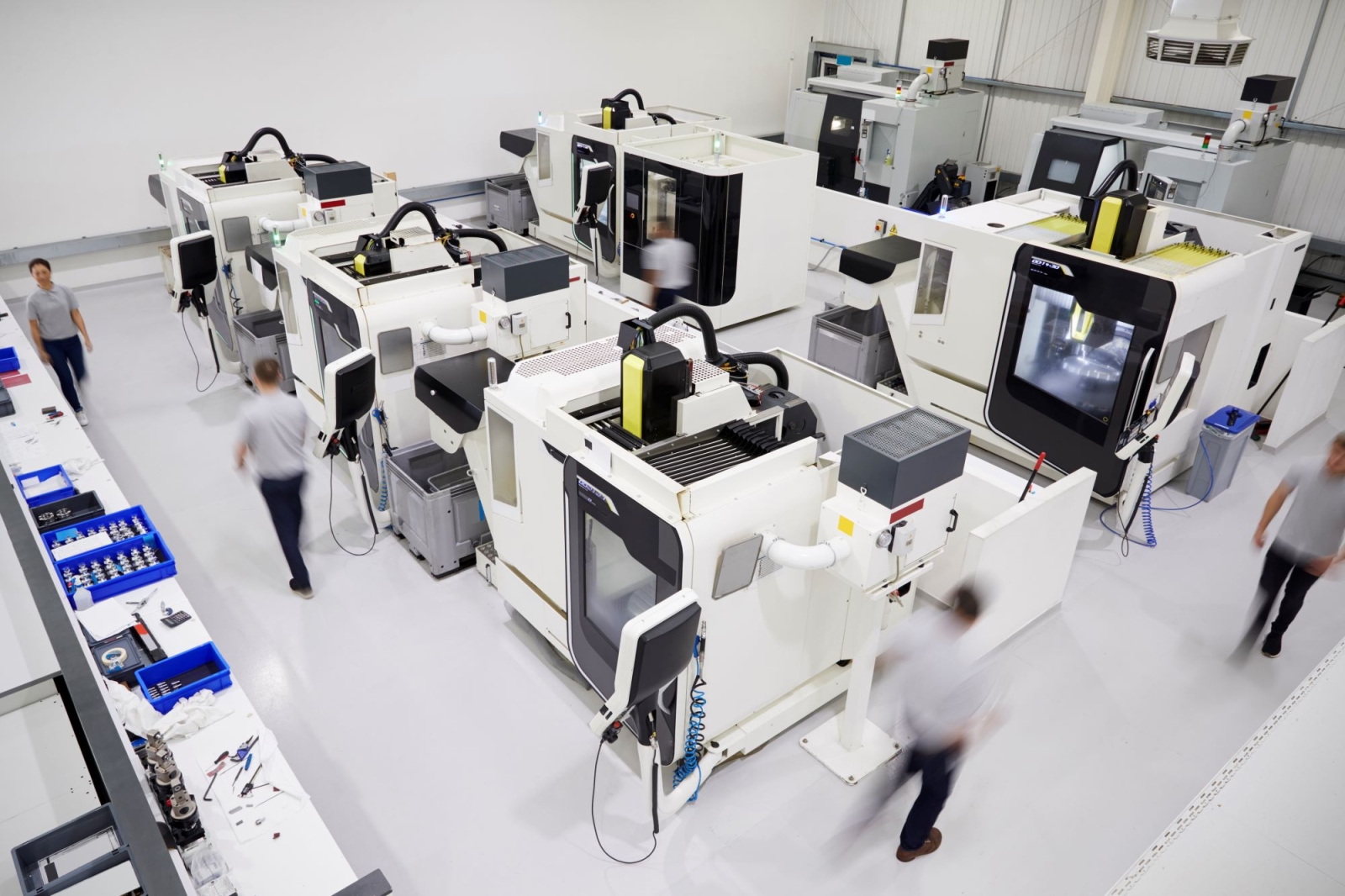Like a contemporary industrial revolution, the energy transition will change the global approach to the working world. More jobs, new roles, but most importantly, an innovative way of studying and training to take full advantage of these opportunities. According to the International Energy Agency's (IEA) World Energy Employment Report 2023, the energy sector employs nearly 67 million workers, with people employed in clean energy sectors (35 million) surpassing those in fossil fuel ones (32 million) in 2021.
Over the following years, according again to data provided by IEA in its Net Zero by 2050 report, the energy transition could create 14 million new clean energy-related jobs, relocate about 5 million workers from fossil fuels to that sector, and require additional skills and training for about 30 million workers.
But how strong is the perceived need for these new skills? And what are they? To answer these and other questions, the MAIRE Foundation, which trains young people in the various fields of technological, energy, and digital innovation, has conducted with IPSOS, in collaboration with NextChem and Tecnimont, an international study, presented at COP28 in Dubai, entitled Winning the global challenge through the creation of skills and competencies worldwide and through industrial cooperation.
The study
For the report, 1,700 people in ten countries (Italy, the United Kingdom, Turkey, Saudi Arabia, the United Arab Emirates, China, India, Algeria, United States, and Chile) were interviewed from September 22 to October 9, 2023, selected by gender, age, geographic macro-areas, education levels, and employment status. In addition, 15 Key Opinion Leaders in sustainability and energy transition from five countries (Italy, the United Kingdom, the United Arab Emirates, India, and the United States) were interviewed from three different target audiences: academics, institutional, and top managers of private companies.
The study shows that more than 90% of the respondents have heard about the energy transition. Familiarity with the topic is high in advanced economies such as the United States (63%), India (63%), Italy (60%), and the United Kingdom (59%), while it falls below 50% in countries such as China, Chile, and Turkey. Almost everyone considers the energy transition important, and two out of three view it as a priority, particularly in Turkey and India (both at 70%), followed by Asian, African, and Latin American countries.
Opinion leaders agree that Northern Europe, the United States, and China have made the most progress, however, Italy, the United Kingdom, and the United States consider their country's situation to be average or falling behind. Saudi Arabia, the United Arab Emirates, India, and China, on the other hand, consider their own countries to be more committed than the others, tending to perceive their progress more positively, sometimes even overestimating it. In countries such as Chile, Algeria, and Turkey, which perceive themselves as lagging behind in the process, energy transition is felt to be a priority more by citizens than by their governments.
However, except for the Italians, who turn out to be the most skeptical, those surveyed generally agree that the energy transition will bring benefits in several fields, especially economic, health, and environmental. Top of the list for all but Italy is the creation of new jobs, particularly in Algeria, Turkey, Saudi Arabia, and India. However, there is a widespread perception that school and academic pathways are not developing fast enough to ensure adequate training for the needs of the world of work.
Searching for humanist engineers
Among the skills required for future energy transition professionals, both technical and soft skills are considered crucial. Among soft skills, creativity (especially for the United Kingdom, Algeria, Saudi Arabia, India, and the United Arab Emirates), problem-solving skills (Italy, Turkey, Saudi Arabia, China, the United States, and Chile), critical thinking (United Kingdom), flexibility, and teamwork are considered most important. In Italy, in particular, familiarity with the regulatory framework and the ability to analyse the impact of the energy transition on the territory are highly valued.
As for hard skills, the ability to assess environmental impact and knowledge of raw materials and renewable energy sources have more weight. In India, the United States, and the United Arab Emirates, one in two respondents considers technical knowledge more important than personal skills, but in general, both soft and hard skills are seen as crucial, in an intertwining that the MAIRE Foundation sums up under the term “humanist engineer”: one who has the ability to take human needs and social welfare into account in decision-making processes and in the development of sustainable energy solutions. It is precisely the training of the humanist engineers of the future that is the focus of the MAIRE Foundation's educational and cultural activities, which promotes courses in schools and universities for this purpose.
According to the study, more than 85% of those surveyed in Italy, Turkey, China, and Algeria believe their skills need to be upgraded, while the percentage drops but nevertheless remains above 75% in the other countries. The entities held responsible for energy transition education are mainly central governments (cited by 61% of respondents), then public entities such as research centers and universities (57% and 48%). The role of private companies, however, is also considered relevant by 40% of respondents. In general, the most important training considered is university education, with the need to start as early as elementary school with an environmentally friendly educational approach.
Television and national newspapers are considered reliable sources of information on the energy transition, especially in Asian countries, while trade journals or academic publications are more trusted in Italy, the United Kingdom, and the United States. Research centres and foundations are also considered crucial because, the study says, “They can complement formal educational programs by reaching a broader demographic through diversified course offerings.” The MAIRE Group, for example, has a network of partnerships with more than 24 universities worldwide and Open Innovation platforms that aim to create research and development ecosystems to foster innovation in the energy transition.
The role of private companies
There is a widespread belief among respondents that companies bear most of the burden of the energy transition. Not surprisingly, attention to this area is believed to be increasing over the past three years, but more by private companies than by politics, especially in Italy, Turkey, India, and Chile. There is a consensus that companies, to successfully address the energy transition, must shift to renewable energy sources, implement transparent reporting, develop the necessary skills internally, and promote cultural change externally as well.
Among the needs noted by the study, with the aim of increasing awareness of the energy transition, appears cooperation at various levels between local authorities, central governments, private companies, and international organizations, through streamlining bureaucratic procedures, clear regulations, and the creation of common digital platforms. It is widely believed that there is no need to create new organisations but to focus on strengthening existing ones, particularly the UN, UNFCCC, International Renewable Energy Agency, Union for the Mediterranean, and the European Union, which opinion leaders say is the most virtuous of the global players.
A matter of gender
Women currently account for only 16% of those employed in the energy sector. In interviews, the creation of job opportunities for women ranks last among perceived benefits, with varying levels of consensus: particularly felt in India and Saudi Arabia, limited in the UK, China, and especially Italy. However, the creation of new professions in this area can offer young women more opportunities to enter the labour market, if directed to suitable university paths.
Therefore, the MAIRE Foundation is engaged in training courses to introduce female students to STEM (Science Technology Engineering and Math) disciplines. In particular, in Italy, the MAIRE Foundation has developed a project in collaboration with ENEA, with the aim of training female high school students on STEM disciplines and energy efficiency and transition, with more than 2,000 hours of lessons already delivered so far.
This article is also available in Italian / Questo articolo è disponibile anche in italiano
Image: Envato
This content is produced thanks to the support of sponsors



